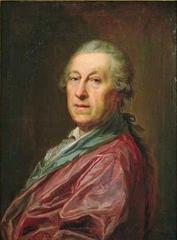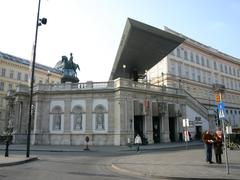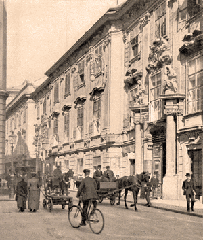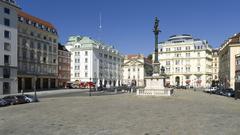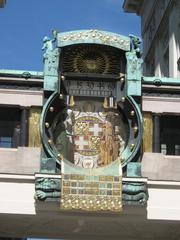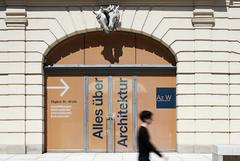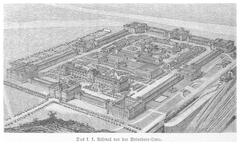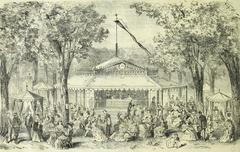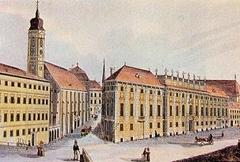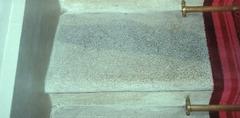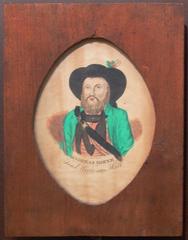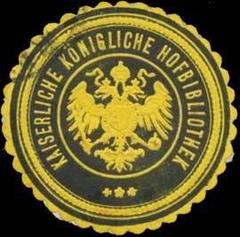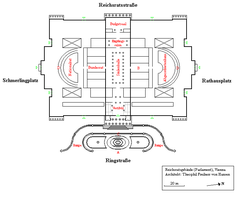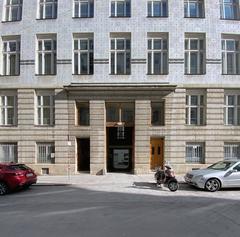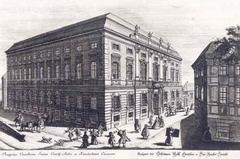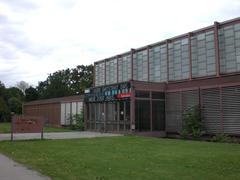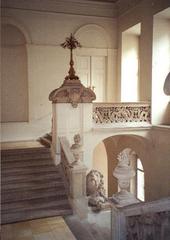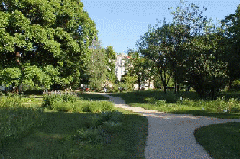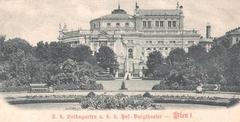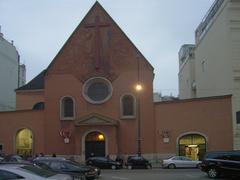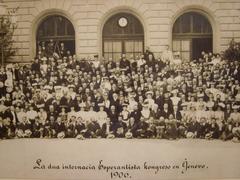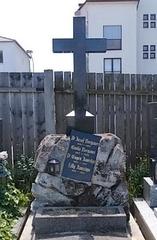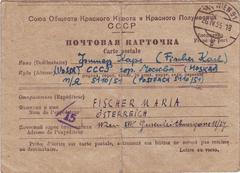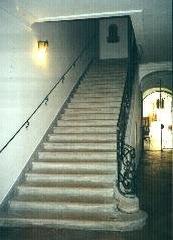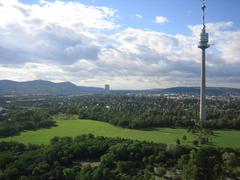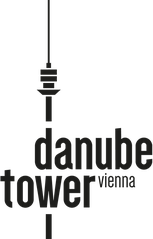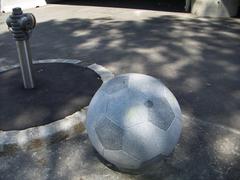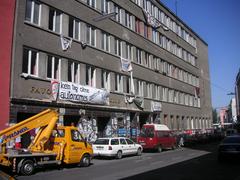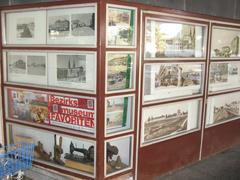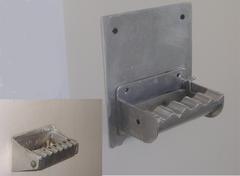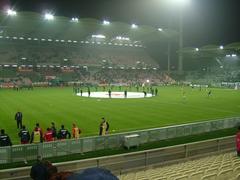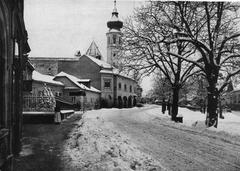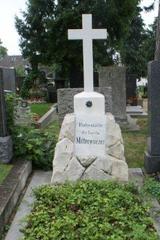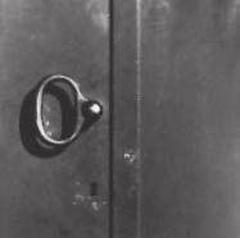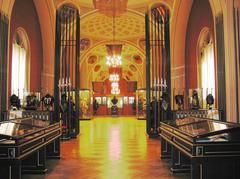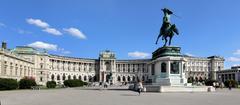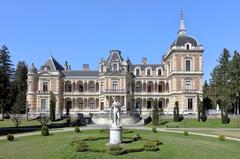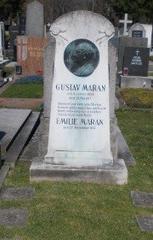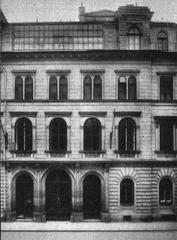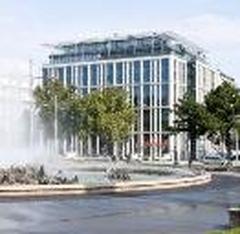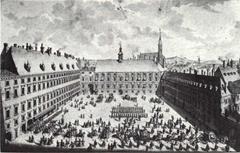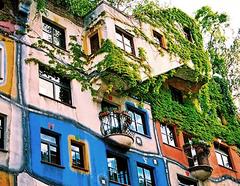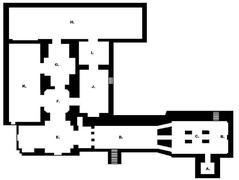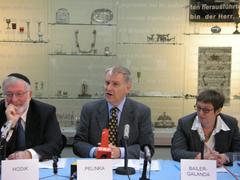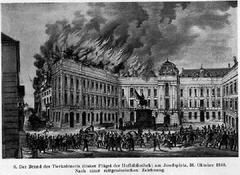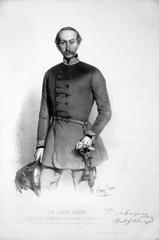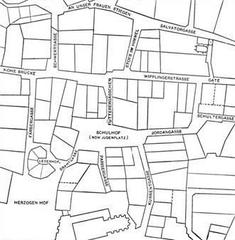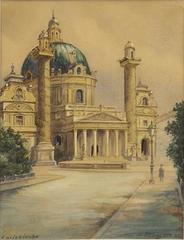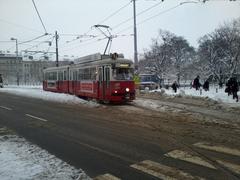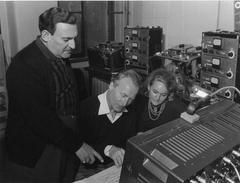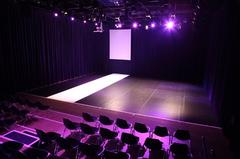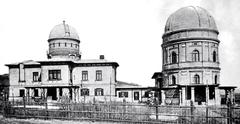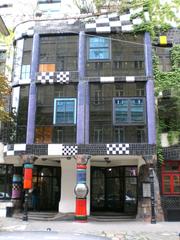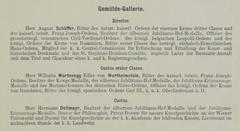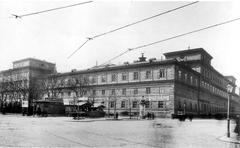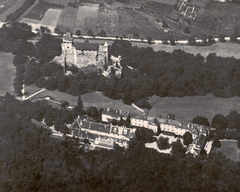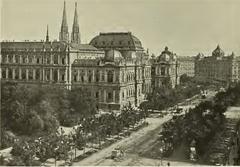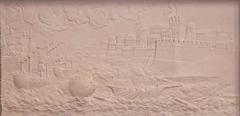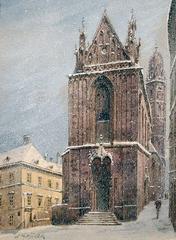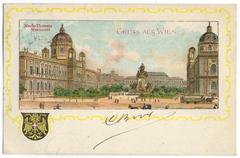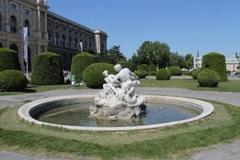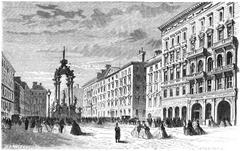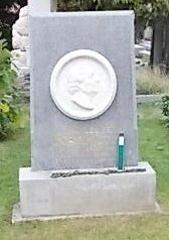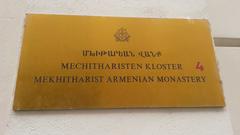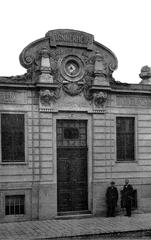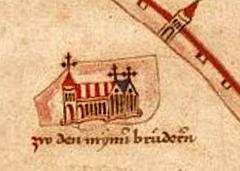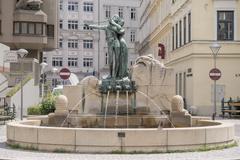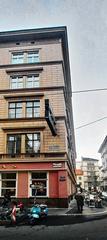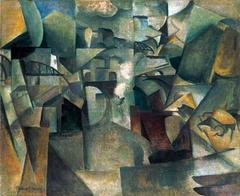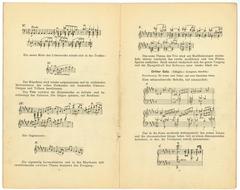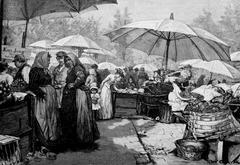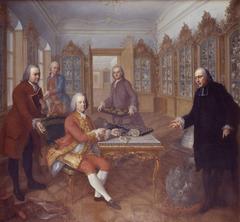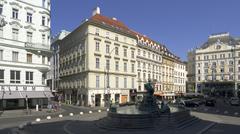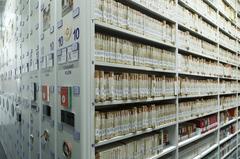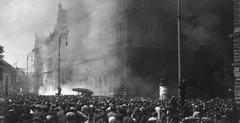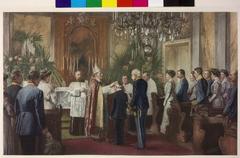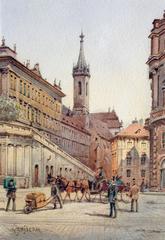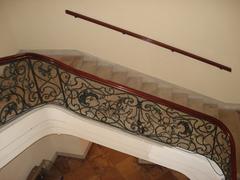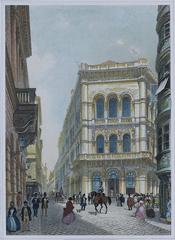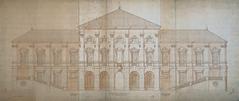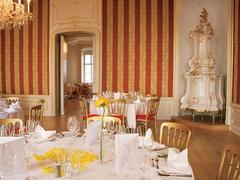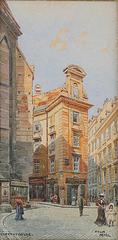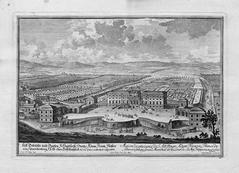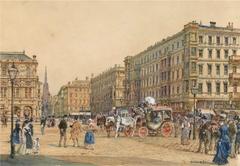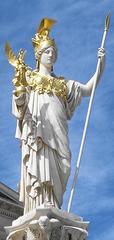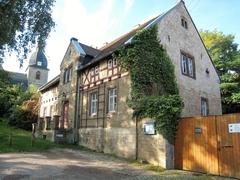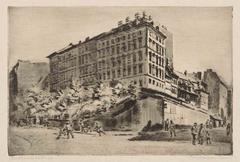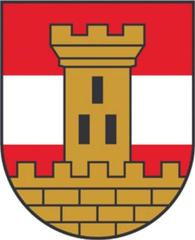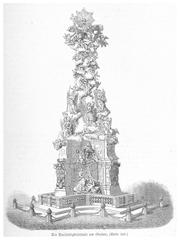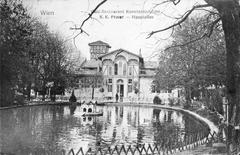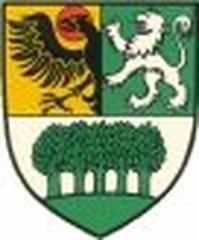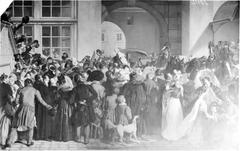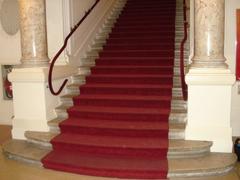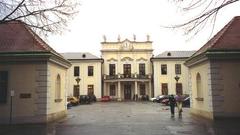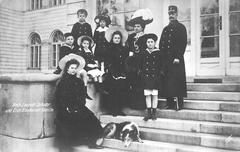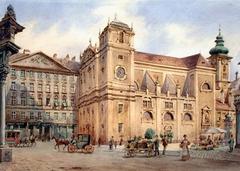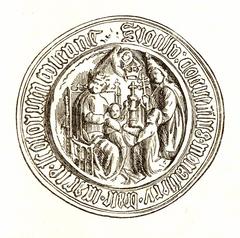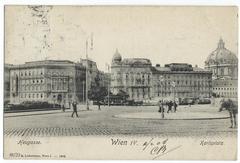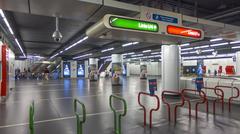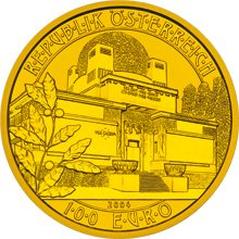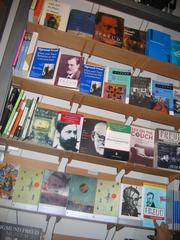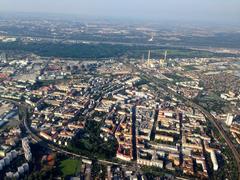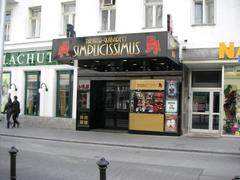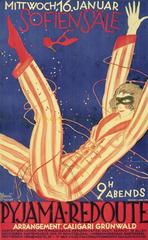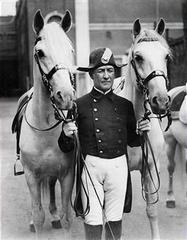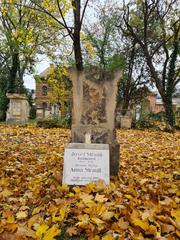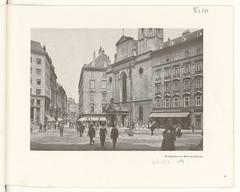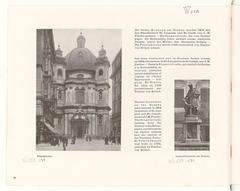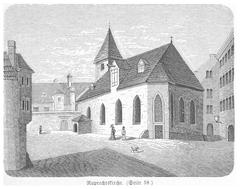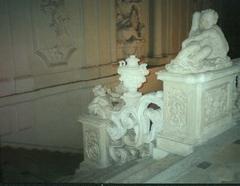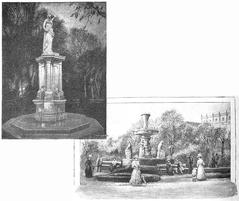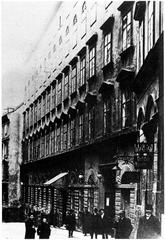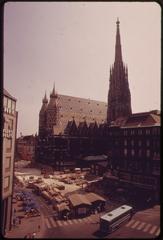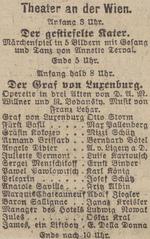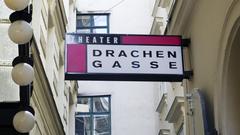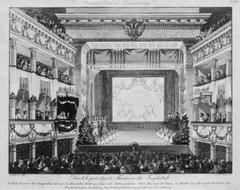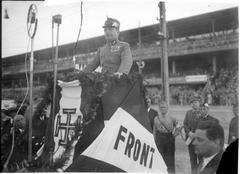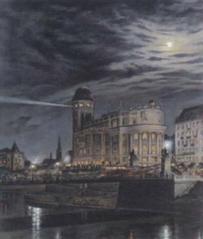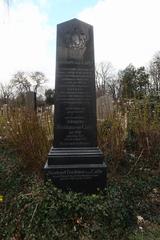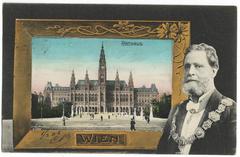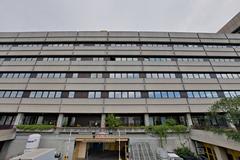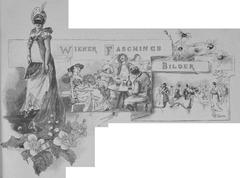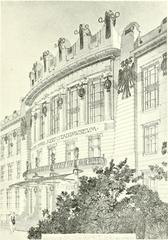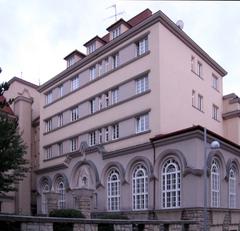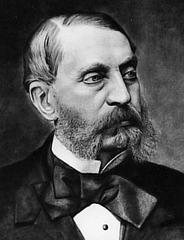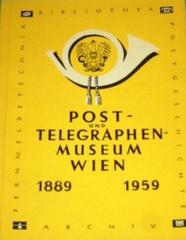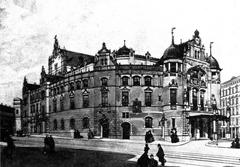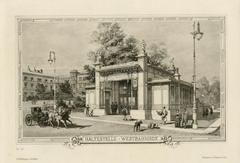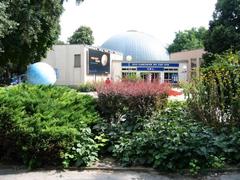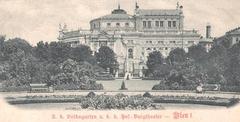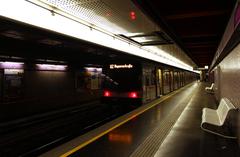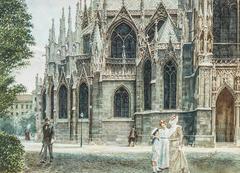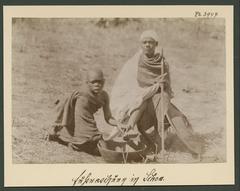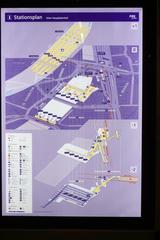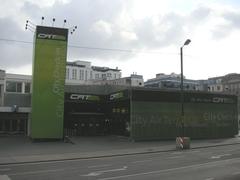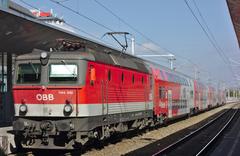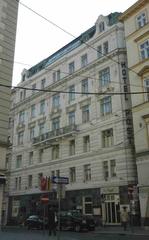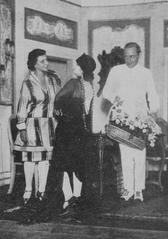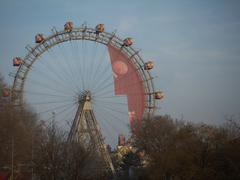
Rosenhügel Studios Visiting Hours, Tickets, and Vienna Historical Sites Guide
Date: 04/07/2025
Introduction
Rosenhügel Studios, located in Vienna’s Liesing district, represent a fundamental chapter in Austria’s cinematic legacy. Since their establishment between 1919 and 1923, the studios have evolved from a pioneering film production facility into a symbol of both historical significance and modern innovation. Today, Rosenhügel Studios are recognized not only for their architectural grandeur and historical productions but also for their ongoing contributions to Vienna’s cultural and creative industries.
Although primarily an active production site, Rosenhügel Studios periodically open their doors for guided tours, events, and cultural festivals, providing visitors with an immersive journey through Austria’s film history. This comprehensive guide covers everything you need to know about visiting Rosenhügel Studios, including details on visiting hours, ticketing, accessibility, travel tips, and the studios’ enduring cultural influence.
For the latest updates and event announcements, consult the official Vienna tourism website, as well as authoritative resources such as Academia.edu and Wikipedia.
Table of Contents
- Introduction
- Historical Overview
- Visiting Rosenhügel Studios: Practical Information
- Architectural and Technological Highlights
- Visitor Experience and Activities
- Cultural Legacy and Impact
- FAQ
- Summary and Visitor Tips
- References & Further Reading
Historical Overview
Origins and Early Development (1919–1930s)
Constructed between 1919 and 1923 by Vita-Film, Rosenhügel Studios rapidly became Austria’s largest and most advanced film production facility. Their debut production, “Samson und Delila” (1922), showcased the studios’ state-of-the-art technology and ambition. Despite early artistic successes, Vita-Film struggled financially and succumbed to bankruptcy in 1924 due to growing competition from American imports.
The Nazi Era and World War II (1938–1945)
Following Austria’s annexation by Nazi Germany, the studios were integrated into Wien-Film GmbH. Under this regime, Rosenhügel produced both entertainment and propaganda films, with significant investments in new infrastructure, including a state-of-the-art synchronization hall for sound film production.
Postwar Years and Revival (1945–1960s)
After World War II, the studios entered a golden age, producing classics that helped define Austrian cinema. The innovative artificial light hall (Halle 1) became a hub for major productions and contributed to the studio’s postwar renaissance.
Transition to Television and Recent Developments (1960s–Present)
With the rise of television, Rosenhügel Studios shifted focus to TV productions and were acquired by ORF in 1966. The studios hosted popular series such as “Ein echter Wiener geht nicht unter.” In the 21st century, parts of the site have been redeveloped, but key buildings like Halle 1 and the Synchronhalle have been preserved under heritage protection, ensuring ongoing cultural and educational use (Wikipedia – Studios Rosenhügel).
Visiting Rosenhügel Studios: Practical Information
Location and Accessibility
- Address: Rosenhügelstraße 192–198, 1230 Vienna, Austria.
- Public Transport:
- U6 subway to Siebenhirten, then bus 56A or 56B.
- Tram line 67 and bus lines 62A/64A also serve the area.
- Car: Accessible via B12/B17; parking is limited.
- Taxi/Ride-Sharing: Taxis and services like Uber offer direct access.
Visiting Hours and Tickets
- Regular Access: Rosenhügel Studios are not open as a public museum. Entry is possible during special events, open days, or guided tours.
- Tickets: Prices and availability vary by event or tour. Tickets are generally available online via the Vienna tourism website or from event organizers.
- Discounts: Reductions may apply for students, seniors, and Vienna City Card holders.
Facilities and Amenities
- Reception and Security: Entry is monitored; expect security checks.
- Restrooms: Available during events and tours.
- Cafeteria/Catering: No permanent café; temporary catering for large events may be available.
- Accessibility: Wheelchair access has improved, but some historic areas may be challenging. Contact ahead for specific needs.
- Nearby Dining/Accommodation: Liesing district offers a range of restaurants and hotels, easily reached by public transport.
Nearby Attractions
- Lainzer Tiergarten: Vienna’s famous nature reserve.
- Schloss Hetzendorf: Historic baroque palace.
- Liesing District: Local markets, cafes, and cultural venues.
Special Events and Photography
- Events: The studios participate in Vienna’s film festival circuit and community events, including workshops and open-air cinema.
- Photography: Permitted in public and exhibition areas, but restricted on active sets.
Architectural and Technological Highlights
Architecture
- Historic Design: Early 20th-century industrial style, with brickwork, steel frameworks, and high-ceilinged sound stages.
- Modernization: Expansion in the 1930s–1940s added soundproofed stages and improved acoustics. Postwar upgrades introduced advanced lighting and editing suites.
- Preservation: Halle 1 and Synchronhalle are protected monuments, blending heritage with adaptive reuse for sports and music production.
Technological Innovation
- Early Advances: Introduced cutting-edge lighting, sound, and large-scale set construction.
- Digital Era: Integrated digital editing, high-definition cameras, CGI, and sustainable renovations, positioning the studios for international projects (Tech Innovations in the Film Industry, Wrapbook).
Visitor Experience and Activities
- Guided Tours: Offer access to historic sound stages, workshops, and editing suites, with insights into the studios’ architectural and technological evolution.
- Interactive Exhibits: Showcases of filmmaking history, from vintage cameras to modern CGI workstations.
- Virtual Reality: Immersive experiences for visitors of all ages.
- Family-Friendly Activities: Educational workshops and hands-on sessions during select events.
- Amenities: Accessible pathways, elevators, and visitor centers. On-site lounges and gift shops enhance comfort.
Cultural Legacy and Impact
Pioneering Role
Rosenhügel Studios have shaped Austria’s and Europe’s film history, establishing Vienna as a creative hub for directors, actors, and technicians. The studios spearheaded genres like the “Wiener Film” and helped set technical standards across the continent (Academia.edu).
Postwar and International Recognition
The studios symbolized Austria’s postwar cultural revival, hosting productions such as the “Sissi” trilogy and serving as a venue for international co-productions (shunculture.com).
Preservation and Urban Development
Key sites like the Vienna Synchron Stage remain active for global film music recording. Urban redevelopment since 2014 has integrated new residential and commercial spaces, while maintaining the studios’ creative heritage.
Educational and Community Engagement
Rosenhügel Studios collaborate with schools and universities, offering workshops and fostering new talent. Community events ensure ongoing public engagement.
Tourism and Vienna’s Image
The studios are a draw for film enthusiasts and tourists, contributing to Vienna’s reputation as a global film and cultural destination (viennatouristinformation.com).
Frequently Asked Questions (FAQ)
Q: Are Rosenhügel Studios open for daily visits?
A: No, general access is limited to special events, guided tours, or open days.
Q: How can I buy tickets for Rosenhügel Studios events?
A: Tickets are available online via the Vienna tourism portal or from event organizers. Advance booking is recommended.
Q: Is Rosenhügel Studios accessible by public transport?
A: Yes, via U6 subway and connecting bus lines, as well as tram and city buses.
Q: Are guided tours in English available?
A: English-language tours may be offered; check event details in advance.
Q: Can I take photos inside the studios?
A: Photography is allowed in designated areas, but not on active sets.
Q: Are the studios wheelchair accessible?
A: Accessibility has improved, but some historic sections may be challenging. Inquire ahead for specific needs.
Summary of Key Information and Visitor Tips
Rosenhügel Studios stand as a living monument to Vienna’s cinematic and cultural evolution. Their preserved architecture, pioneering technology, and vibrant role in both film history and contemporary creative industries make them a must-visit for film enthusiasts, historians, and travelers. Occasional guided tours and special events provide rare opportunities to explore the studios’ storied grounds, while accessibility upgrades and family-friendly activities enhance the visitor experience. To stay informed about upcoming tours, events, and ticketing, refer to the official Vienna tourism portal and consider downloading the Audiala app for exclusive content and updates.
Suggested Visuals and Media
- Photographs of the historic studio buildings with alt text like “Rosenhügel Studios historic buildings Vienna.”
- Maps showing location and transport routes.
- Images from past open days or film festivals.
- Infographics summarizing visiting hours and ticketing.
References and Further Reading
- Rosenhügel Studios in Vienna: Visiting Hours, Tickets & Architectural Highlights, 2025 (https://www.wien.info/en/see-do/discover-vienna/tours-guides)
- Rosenhügel Studios: Visiting Hours, Tickets, and Cultural Legacy in Vienna, 2025 (https://www.academia.edu/15275007/Austria_Hungry_Return_of_a_Film_Nation_Vienna_s_Forgotten_Influence_and_New_Austrian_Film)
- Rosenhügel Studios Visiting Hours, Tickets & Insider Tips for Vienna’s Historic Film Site, 2025 (https://fr.wikipedia.org/wiki/Studios_Rosenh%C3%BCgel)
Plan your visit to Rosenhügel Studios and experience the enduring magic of Austrian cinema. For more on Vienna’s cinematic landmarks and cultural history, explore our related articles or download the Audiala app for curated guides and insider recommendations.

